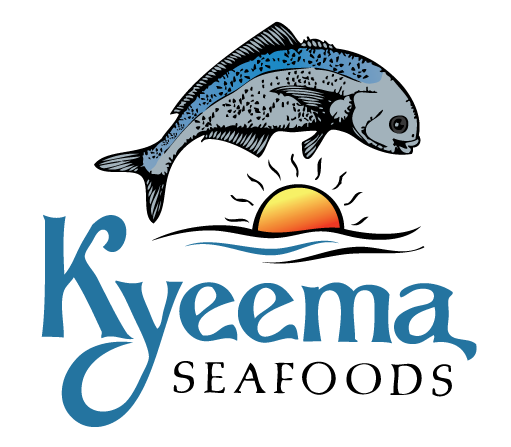As seafood processors we are legally bound to have the following permit, accreditation, and license:
Fish Receiver Permit from AFMA under the Fisheries Management Act 1991
Certificate of Accreditation from DPIPWE under the Primary Produce Safety Act 2011
Fish Processing License from DPIPWE under the Living Marine Resources Management Act 1995
Beyond these compulsory qualifications, we voluntarily aim for best practice at Kyeema Seafoods.
How?
We only purchase our fish from boats that use best practice methods such as Danish Siene, Droplines, Pelagic Longline, Bottom Longline, Craypots & Hand-Diving.
SHARK INDUSTRY DATA COLLECTION PROGRAM (SIDAC)
As part of Kyeema Seafoods commitment to fisheries sustainability we have joined the industry lead Shark Industry Data Collection program (SIDaC). SIDaC has been developed by the Southern Shark Industry Alliance (SSIA) to collect data on the sharks caught by the shark boats in southern Australian waters. Numbered tags are put on some of the Gummy and School Shark on board the FVs Iron Maiden and Mustelus and when the sharks are filleted our staff collect data from these fish. We collect lengths, sex and remove the vertebrae from the tagged sharks before they are filleted. The vertebrae are sent to a laboratory where they are cut to revel growth rings. These rings can be counted under a microscope and, like tree rings, indicate the age of the sharks. The data from the sharks we measure are used by the Australian Fisheries Management Authority and CSIRO in stock assessments to ensure that future catches are sustainable.
at kyeema seafoods
We strive to utilise the whole fish
We try to be as sustainable as possible in our practices by aiming for minimal waste.
Anything that we don’t sell through our wholesale or retail outlets is repurposed or frozen.
Some of the practices we’ve adopted are scraping salmon meat off the frame and using the ‘salmon mince’ for some of our gourmet products and selling the mince through our outlets. We keep fish frames for our fish stock or put them into “craybait” boxes to sell onward. We happily keep most parts of the fish – cheeks, frames, wings, heads, skins, roe!
We love seafood
we don’t want to see our oceans depleted either
We understand that farming practices aren’t ideal for their direct environment.
The finfish industry opened in 1987 in Tasmania, so it’s still new and it is constantly growing. With growth comes knowledge, and with knowledge comes improvements to practices. The impacts of cattle farming on our environment aren’t ideal either, but the world still has a demand for cattle.
We can only aim to educate, advocate, learn and grow.




